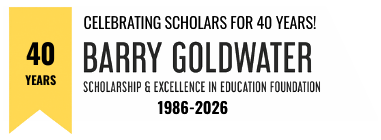“The Goldwater Scholarship set off a chain of events and lessons learned that have led me to a newfound passion for advancing science through science communication. It has shaped my development not only as a researcher, but as a confident and resilient individual.”
I always knew I wanted to work with the natural world. Growing up surrounded by California’s national parks, I learned everything I could about the environment, constantly exploring nature, watching natural history shows, seeking out any opportunity to satisfy my curiosity. Arriving at college, I began to make my own discoveries about nature. After a month of field biology in Belize and three months of marine science courses in the Turks and Caicos Islands, I witnessed how climate change was impacting natural environments around the world and realized that I wanted to contribute to the field. I proposed a study in my Goldwater research essay that would investigate the interaction of salinity and heat stress in three coastal wetland plants to predict how these ecosystems would respond to rising temperatures and sea levels from climate change. The Goldwater Scholarship, by subsidizing my tuition, made it possible for me to pursue research in which I conducted greenhouse and field experiments.
I spent three years working on this study with my mentor Dr. Brant Touchette. It was an incredible experience, but I faced many challenges along the way, perhaps none more dramatic than losing more than half of our data in the field. We were using a tool called a fluorometer that measured photosynthetic rates, which we used as a proxy for measuring how stressed each plant was. After two and a half days in the field, the fluorometer’s memory filled up and I returned to our house to offload the data onto the computer. To my horror, I found that the data files were corrupted and 500 data points from the hottest days of our field trip, the days we predicted that would support our lab experiments, were gone.
After lots of crying and calls with the manufacturing company in Europe, I was forced to accept that the data was lost. I was mad at myself for being careless and worried that this was a sign that I was not worthy to work in science. But I had to face the facts; here I was in the field, with a limited amount of days to recollect the data. I could either give up and succumb to my insecurities or try to salvage the situation. I ultimately chose the latter and was able to save the study, learning an important lesson in resilience, a lesson that I revisited a year later.
Receiving the Goldwater gave me the confidence to apply for more prestigious fellowships, including the Rhodes, Fulbright, and Marshall, which would support my intended graduate study in the UK. I worked all summer on my applications, going through draft after draft with the advisors at the fellowships office at Elon. I made it to the interview round for the Marshall, the highest-stakes interview that I have ever been in. I was also shortlisted for the Fulbright, so I felt optimistic about the outcome.
After months of waiting, I learned that I didn’t win any of the awards. I was devastated. But this time I was prepared. I knew that it was not the outcome that mattered, but how you moved past it. The process had caused me to search for opportunities outside of the US and to discover programs in Science Communication. Having presented my Goldwater research to a variety of audiences, I had found a new strength as a researcher: making complex topics in science more accessible to the public.
I completed my master’s in science communication at Imperial College of London. Courses in science communication theory, social context, and media production taught me the most effective ways to engage all audiences and gave me the tools to effectively communicate how research impacts everyday life. Currently, I am pursuing a career in documentary production with the goal of inspiring conservation and climate change mitigation. I aim to improve trust between audiences and scientists by making complex science accessible to everyone no matter their background.
The Goldwater Scholarship set off a chain of events and lessons learned that have led me to a newfound passion for advancing science through science communication. It has shaped my development not only as a researcher, but as a confident and resilient individual.

